MercoPress. South Atlantic News Agency
Tag: Argentina
-
Thursday, January 2nd 2020 - 08:57 UTC
Mendoza reinstates law that protects water resources following public uproar over a bill favoring mining
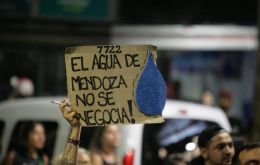
A controversial mining law that sparked massive protests in the province of Mendoza in Argentina’s western-central region was finally abolished. The province's governor Rodolfo Suárez presented a formal request before the legislature on Monday, and with 34 votes in favor and 2 against, the Senate approved the annulment.
-
Tuesday, December 31st 2019 - 13:15 UTC
On request from Alberto Fernandez, YPF rolls back a 5% increase in fuel prices

Argentine president Alberto Fernandez asked the state-managed oil company YPF to roll back a 5% increase on fuels scheduled to become effective, January first, and which would have a major impact on inflation and food prices.
-
Tuesday, December 31st 2019 - 13:10 UTC
Argentina will honor payments this week of bonds totaling some US$ 850 million

The Argentine government announced that this week it will honor payments of some US$ 850 million, which correspond to two different sovereign bonds, one of them a century maturing bond issued in 2017 during the administration of ex-president Mauricio Macri.
-
Tuesday, December 31st 2019 - 12:30 UTC
An intriguing Netflix's production, “The prosecutor, the president and the spy”

Netflix will be launching on January first a six-chapter film on one of the most intriguing criminal cases in recent Argentina history, still unsolved, which refers to the killing of former special prosecutor Alberto Nisman, and which was first categorized as suicide.
-
Monday, December 30th 2019 - 09:58 UTC
Filmus officially appointed as Malvinas, Antarctica and South Atlantic Secretary

The Argentine government made official the appointment of Daniel Filmus as head of the Malvinas, Antarctica and South Atlantic Secretary, which depends on the ministry of foreign affairs and worship.
-
Monday, December 30th 2019 - 09:56 UTC
Argentine president manages an all encompassing Social Pact, but farmers did not show up
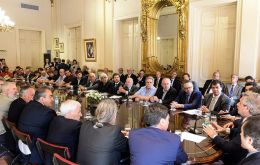
Argentine president Alberto Fernandez together with business people, union leaders and representatives from social groupings launched the social pact, called “Argentine commitment for development and solidarity”, with the purpose of achieving long term consensus that goes beyond a presidential mandate (four years), and includes “shared goals which can be crystallized in different chapters”
-
Saturday, December 28th 2019 - 09:55 UTC
Argentina will continue to honor its debt, and has cleared all 2019 payments

The Argentine government will continue to honor its debt while it works to reach an agreement with creditors, both the IMF and private bond holders, with the purpose of refinancing commitments and achieve a long term sustainable path for the payments, according to sources from the Economy ministry.
-
Saturday, December 28th 2019 - 09:53 UTC
Argentine farmers back on the roads protesting export duties
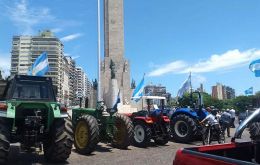
Argentine farmers from the central provinces of Cordoba and Santa Fé are back on the roads to protest the latest raft of export duties on agriculture produce and overall increase in taxes established by the recently sworn in administration of President Alberto Fernandez.
-
Saturday, December 28th 2019 - 09:49 UTC
In a surprising move, Argentine members of Congress freeze their salaries and allowances for 180 days
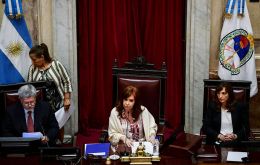
In a surprising decision and probably for the first time in Argentina history, the two chambers of Congress agreed to freeze their salaries for the next 180 days, that is until the end of June.
-
Saturday, December 28th 2019 - 09:48 UTC
Argentina's unemployment in the third quarter rose to 9.7%
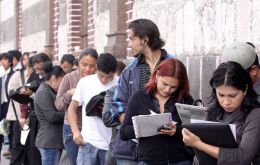
Argentina’s unemployment rate rose to 9.7% in the third quarter versus 9.0% in the same period last year, marking one of the highest rates recorded in recent years, the official INDEC statistics agency said.
